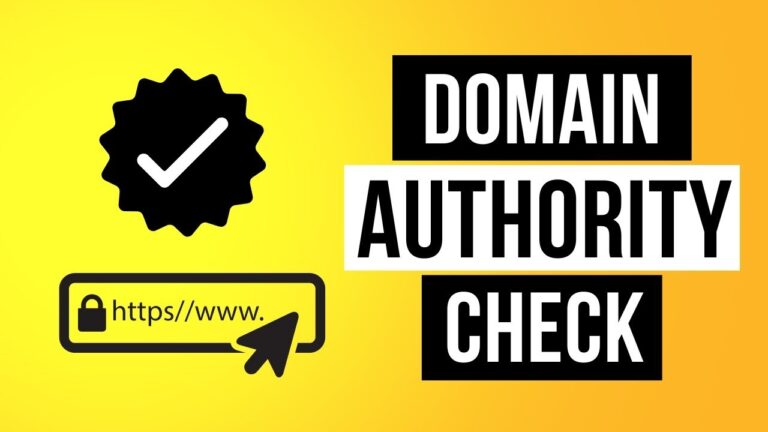Unlocking the Power of the Best Keywords Suggestion Tool
In today’s digital landscape, the right keywords are essential for ranking on search engines. But with so much competition, how do you find keywords that truly resonate with your audience? That’s where a keywords suggestion tool comes into play! These tools are like treasure maps for SEO—they guide you to those high-value keywords that attract traffic, help your content reach the right people, and elevate your online presence. In this guide, we’ll explore what makes a keywords suggestion tool so useful, how it works, and how you can harness its power to refine your SEO strategy.
What is a Keywords Suggestion Tool?
A keywords suggestion tool is a tool that provides a list of keywords related to a primary search term, helping you identify high-potential keywords for your content. It analyzes search data, trends, and competitor sites to suggest relevant keywords based on user behavior and search volume. With it, you’re not just shooting in the dark—you’re basing your keyword choices on real insights.
Why You Need a Keywords Suggestion Tool for SEO
SEO is no longer just about stuffing keywords into your content; it’s about understanding what people are searching for and matching their needs with the right content. A keywords suggestion tool helps you:
- Find relevant, low-competition keywords
- Discover trending search terms and topics
- Understand search intent and user behavior
- Boost your organic traffic and engagement
How Does a Keywords Suggestion Tool Work?
These tools use algorithms to analyze massive amounts of data from search engines. They look at what users are typing in, which keywords are most popular, and which have the highest conversion potential. Here’s a breakdown of how these tools typically work:
- Analyzing Search Data: They pull data from major search engines to see what people are searching for.
- Suggesting Related Terms: The tool generates lists of related keywords based on your primary keyword.
- Evaluating Search Volume and Competition: You get insights into how often each keyword is searched and how competitive it is.
- Tracking Trends: Many tools will also show you if a keyword is trending or losing popularity.
By using these insights, you can tailor your content to match current search trends and increase your chances of ranking well.
Types of Keywords You Should Target
Not all keywords are created equal. Understanding the types of keywords can help you refine your SEO strategy and target the right audience. Here’s a quick overview:
1. Short-Tail Keywords
These are general, one or two-word phrases, like “SEO tools.” They have high search volumes but are very competitive, making it hard to rank for them.
2. Long-Tail Keywords
Long-tail keywords are more specific phrases, like “best free SEO tools for small businesses.” They may have lower search volumes but tend to attract highly targeted traffic.
3. Local Keywords
Local keywords include location-specific terms, such as “SEO tools in New York.” These are ideal for local businesses aiming to capture a nearby audience.
4. Question Keywords
Question keywords answer specific queries, like “What is the best keywords suggestion tool?” These can often lead to “featured snippets” on search engines.
How to Use a Keywords Suggestion Tool Effectively
Finding the right keywords is just the beginning; you need to know how to use them effectively in your content. Here’s a step-by-step guide:
Step 1: Start with a Broad Topic
Enter a general topic related to your niche, like “content marketing” or “email marketing tips.” This will give you a broad list of keywords to narrow down.
Step 2: Analyze Keyword Data
Look at metrics like search volume, competition level, and cost-per-click (CPC) if available. Aim for keywords with moderate search volume and low competition for easier ranking.
Step 3: Check for Keyword Intent
Ensure the keywords align with what your audience wants. Are they looking for information, a product, or a specific service? Tailor your content accordingly.
Step 4: Look at Competitors
Many tools allow you to see which keywords competitors rank for. This insight helps you identify gaps in your own content and discover keywords you may have missed.
Step 5: Organize Keywords by Content Type
Categorize your keywords based on the content type they’re best suited for. For example:
- Blog posts: Answering common questions or exploring broad topics.
- Landing pages: Focusing on product or service keywords.
- Product descriptions: Targeting purchase-oriented keywords.
Popular Keywords Suggestion Tools to Try
There are a variety of tools available, each with unique features. Here are some popular options:
- Google Keyword Planner
- Free and provides data straight from Google.
- Ideal for beginners but limited in advanced features.
- Ahrefs
- Comprehensive SEO tool with advanced keyword research.
- Great for competitor analysis and backlink insights.
- Ubersuggest
- User-friendly and budget-friendly.
- Offers keyword ideas, SEO audit, and content suggestions.
- SEMrush
- Known for its extensive keyword database and SEO analysis.
- Excellent for content marketing, SEO audits, and paid advertising.
- Moz Keyword Explorer
- Offers accurate keyword suggestions and SEO difficulty scores.
- Ideal for in-depth SEO research and tracking.
FAQs about Keywords Suggestion Tools
Q1: Are free keyword suggestion tools accurate?
Absolutely, but they may have limitations compared to paid options. Free tools like Google Keyword Planner are great for basic insights but may lack advanced metrics.
Q2: How often should I update my keywords?
It’s a good idea to review and update your keywords every three to six months, or whenever you notice shifts in search trends.
Q3: Can I use multiple keywords suggestion tools?
Yes! In fact, using multiple tools can provide a broader view and help you cross-check data for better accuracy.
Q4: Which is better: short-tail or long-tail keywords?
Both have their place. Short-tail keywords attract broad traffic, while long-tail keywords bring more targeted, high-converting visitors. A mix is usually best for a balanced SEO strategy.
Key Benefits of Using a Keywords Suggestion Tool
Using a keywords suggestion tool comes with numerous benefits for your SEO efforts. Here are some key advantages:
- Enhanced Content Relevance: By using targeted keywords, your content becomes more aligned with what users are searching for.
- Increased Organic Traffic: Relevant keywords help improve your ranking on search engines, leading to more clicks.
- Competitor Insight: These tools often allow you to analyze competitor keywords, giving you an edge in your niche.
- Optimized Marketing Strategy: Keywords can help guide your entire marketing strategy, ensuring that your content, ads, and emails are all speaking the same language.
Conclusion
A keywords suggestion tool is one of the most powerful resources in your SEO arsenal. Whether you’re a beginner or an experienced marketer, these tools provide invaluable insights that make creating optimized, targeted content easier. By choosing the right keywords, tailoring your content accordingly, and keeping an eye on the competition, you can boost your rankings and drive quality traffic to your website. So, if you haven’t already, dive into the world of keywords suggestion tools and watch your SEO strategy flourish!






